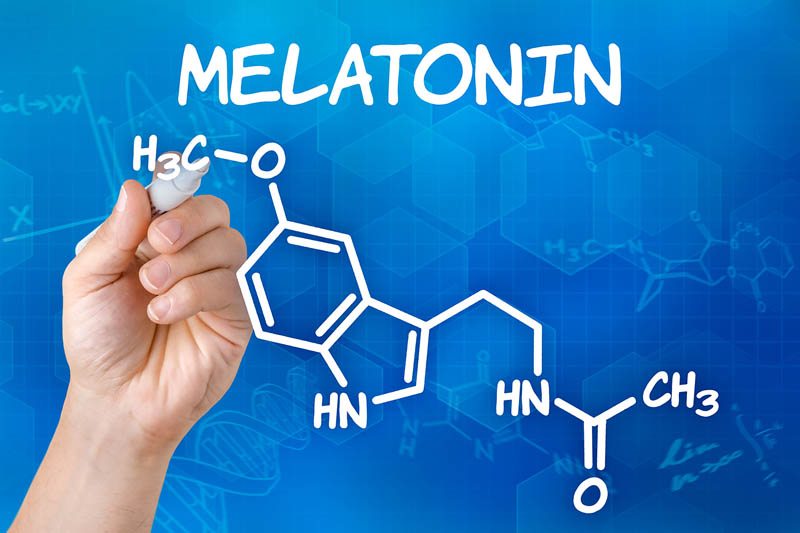What Is the Role of Melatonin in Regulating Sleep-Wake Cycles

Melatonin, a hormone produced by the pineal gland, plays a significant role in regulating sleep-wake cycles.
This article aims to explore the various aspects of melatonin’s involvement in the circadian rhythm, its impact on sleep quality, and its potential therapeutic use in sleep disorders.
Additionally, the effects of melatonin supplementation will be examined.
Through the analysis of scientific research and empirical evidence, this article seeks to provide a comprehensive understanding of the role of melatonin in the regulation of sleep-wake cycles.
Key Takeaways
- Melatonin is produced by the pineal gland and its synthesis is regulated by factors such as light exposure.
- Melatonin plays a crucial role in regulating sleep-wake patterns and circadian rhythm disorders.
- Melatonin signals the body to rest and promotes sleep, influencing the duration, onset, and quality of sleep.
- Insufficient melatonin production can contribute to sleep disorders, but melatonin supplementation can improve sleep quality in conditions like insomnia.
The Production of Melatonin
The production of melatonin is primarily regulated by the pineal gland in response to the circadian rhythm. Melatonin synthesis begins with the conversion of the amino acid tryptophan into serotonin, which is further converted into melatonin by the enzymatic action of serotonin-N-acetyltransferase (SNAT) and acetylserotonin-O-methyltransferase (ASMT).
The synthesis of melatonin is tightly regulated by various factors, including light exposure, which inhibits its production. The neural pathway involved in melatonin regulation starts with the retina, which detects light and sends signals to the suprachiasmatic nucleus (SCN) of the hypothalamus. The SCN then relays these signals to the pineal gland, leading to the inhibition or stimulation of melatonin synthesis.
This regulation ensures that melatonin levels are high during the night and low during the day, thus playing a crucial role in regulating sleep-wake cycles.
Melatonin and Circadian Rhythm
Circadian rhythm is regulated by the secretion of a hormone that influences the timing of sleep and wakefulness. Melatonin, a hormone produced by the pineal gland, plays a crucial role in regulating the circadian rhythm.
Here are four important points about melatonin and its relationship with circadian rhythm:
- Melatonin and Jet Lag: Melatonin supplements can help alleviate the symptoms of jet lag by adjusting the circadian rhythm to match the new time zone. Taking melatonin before bedtime can help promote sleep and reduce the time it takes to adjust to the new time zone.
- Melatonin and Shift Work: Shift workers often experience a disruption in their circadian rhythm due to irregular sleep patterns. Melatonin supplementation can be beneficial in helping shift workers adjust to their changing sleep schedules and improve sleep quality.
- Melatonin Production: Melatonin is primarily produced in the absence of light, with production peaking during the night. Light exposure, especially blue light, inhibits melatonin production, which can affect the timing of sleep and wakefulness.
- Individual Variation: The secretion of melatonin varies among individuals, with some people naturally producing more or less melatonin. This individual variation can contribute to differences in sleep-wake patterns and susceptibility to circadian rhythm disorders.
How Melatonin Affects Sleep Quality
Light exposure, particularly blue light, negatively impacts the production of melatonin, thereby affecting the quality of sleep. Melatonin is a hormone produced by the pineal gland in response to darkness, playing a crucial role in regulating the sleep-wake cycle. It helps to promote sleep by signaling to the body that it is time to rest. Research has shown that melatonin not only influences the duration and onset of sleep but also affects the quality of sleep. Reduced melatonin levels can lead to difficulty falling asleep, fragmented sleep, and decreased sleep efficiency.
Additionally, melatonin has been found to influence dreaming, with higher levels associated with more vivid dreams. Moreover, melatonin supplementation has shown promise in alleviating symptoms of jet lag by helping to reset the body’s internal clock. Overall, melatonin plays a significant role in sleep quality and the regulation of sleep-wake cycles.
Melatonin and Sleep Disorders
Insufficient production of melatonin can contribute to the development and exacerbation of various sleep disorders. Melatonin, a hormone produced by the pineal gland, plays a crucial role in regulating the sleep-wake cycle.
Research on melatonin has focused on its potential therapeutic effects on sleep disorders, particularly insomnia. Studies have shown that melatonin supplementation can be beneficial in improving sleep quality and reducing sleep onset latency in individuals with insomnia. Additionally, melatonin has been found to enhance sleep efficiency and increase total sleep time.
However, the efficacy of melatonin in treating insomnia may vary depending on factors such as the dosage, timing of administration, and individual characteristics. Further research is needed to fully understand the mechanisms of action and optimize the use of melatonin in managing sleep disorders.
Melatonin Supplements and Their Effects
The efficacy of melatonin supplements in managing sleep disorders remains a topic of ongoing research and requires further investigation to optimize their use.
Melatonin is a hormone produced by the pineal gland that plays a crucial role in regulating sleep-wake cycles. While melatonin supplements are commonly used to treat sleep disorders such as insomnia and jet lag, the optimal dosage for different individuals and conditions remains uncertain.
Studies have shown that melatonin supplementation can improve sleep quality and reduce sleep onset latency, but the evidence is mixed and inconclusive. Moreover, melatonin supplements may have certain side effects, including daytime drowsiness, headache, and dizziness.
Therefore, it is important to carefully consider the appropriate melatonin dosage and potential side effects when using these supplements for sleep disorders. Further research is needed to establish clear guidelines for melatonin supplementation in the management of sleep disorders.
Frequently Asked Questions
What Are the Potential Side Effects of Taking Melatonin Supplements?
Potential long term effects of melatonin supplements are still being studied, but short-term side effects may include drowsiness, headache, and dizziness. It is important to consult with a healthcare professional to determine the appropriate dosage for individual needs.
Can Melatonin Be Used to Treat Jet Lag?
The effectiveness of melatonin in treating jet lag and the appropriate dosage are subjects of scientific inquiry. Exploring the potential benefits and optimal administration of melatonin supplements may shed light on its role in regulating sleep-wake cycles.
How Does Melatonin Interact With Other Medications?
Melatonin’s role in regulating sleep-wake cycles is influenced by its interactions with other medications. Understanding the effectiveness of melatonin when used in combination with different drugs is essential in determining its potential therapeutic benefits.
Can Melatonin Be Used to Treat Insomnia in Children?
The effectiveness of melatonin for pediatric insomnia and the appropriate dosage for children are topics of interest. Research is needed to determine if melatonin can be used as a treatment for insomnia in children.
Is Melatonin Safe to Use During Pregnancy and Breastfeeding?
The safety of melatonin during pregnancy and breastfeeding is a topic of concern. Limited research suggests potential risks of melatonin for infants, but more studies are needed to fully understand its effects.









